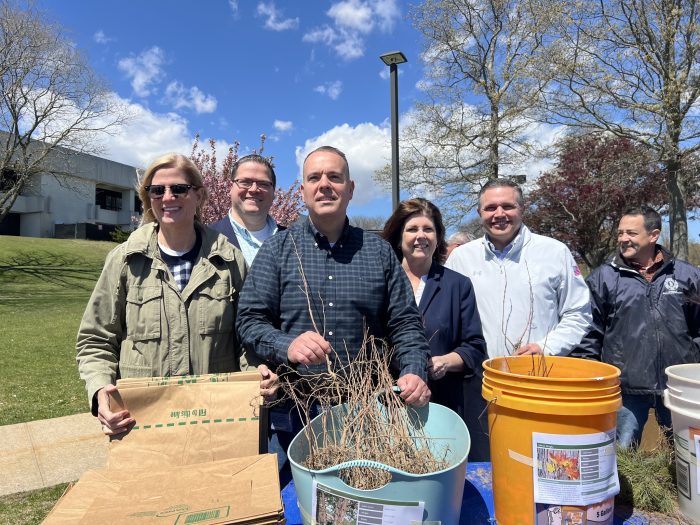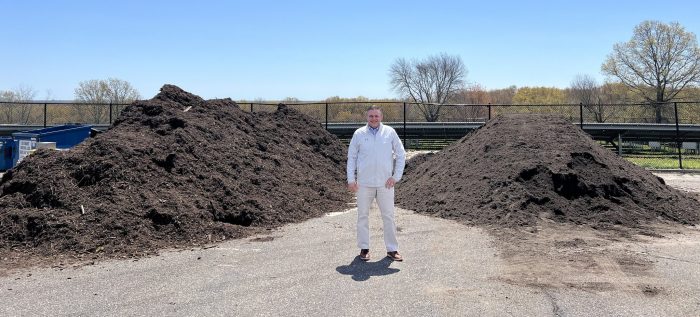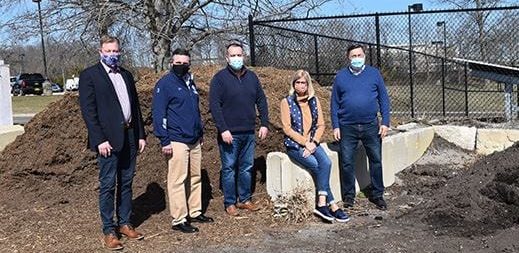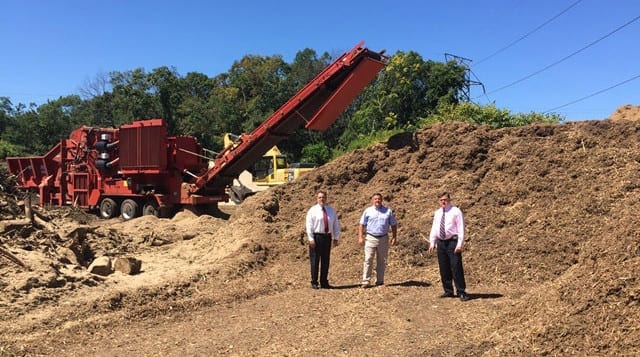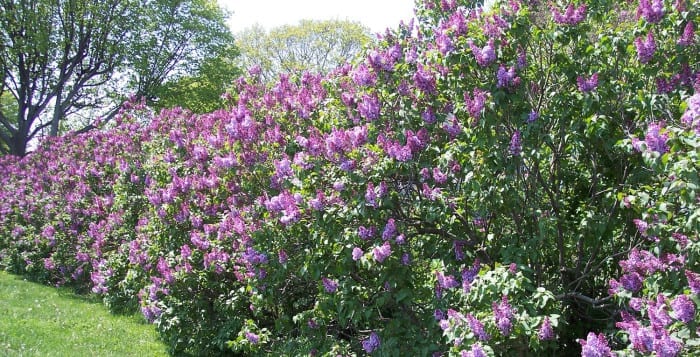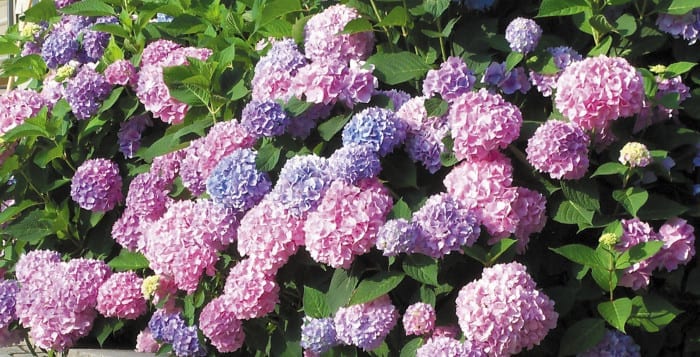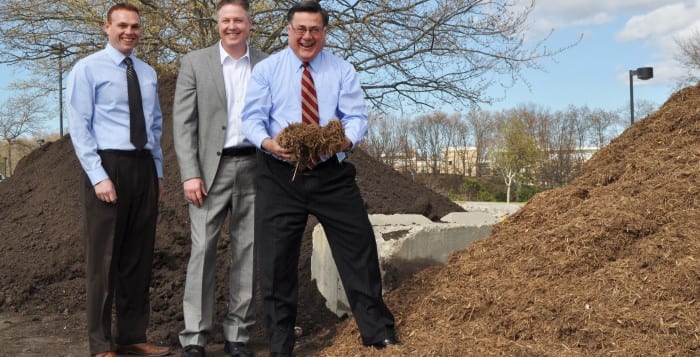In celebration of Arbor Day, the Town of Brookhaven will hold its annual tree seedling, mulch and compost give away in the South Parking Lot of Brookhaven Town Hall, located at 1 Independence Hill in Farmingville on Friday, April 25 from 1 p.m. to 6 p.m.
Recently recognized by the Arbor Day Foundation as a Tree City USA community for the 10th year, the event on April 25 is also part of the Town’s “Greening Brookhaven” initiative.
The tree seedlings available for pick-up are Red Pine; American Hazelnut; Bear Oak; Hybrid Poplar; Wetland Rose; Bristly Locust; Sand Cherry and Prairie Willow.
Free mulch and compost will also be available in bulk — residents must bring shovels and containers to load it into their vehicles. All items will be available on a first come, first served basis while supplies last.
In addition, residents will be able to pick up their orders of discounted backyard composters and rain barrels at this event. Orders must be placed by April 22 through this secure website brookhaven.compostersale.com.
Residents of Brookhaven Town may pick up free mulch and compost at the following Town facilities:
- Brookhaven Town Hall, South Parking Lot, One Independence Hill in Farmingville
Monday – Friday from 9:00 am to 7:30 pm and Saturday-Sunday 8:00 am to 8:00 pm - Percy Raynor Park, Route 347 and Belle Mead Road in South Setauket
Monday – Friday from 7:00 am to 9:00 pm and Saturday and Sunday from 8:00 am to 8:00 pm - Rose Caracappa Center, 739 Route 25A in Mt. Sinai
Monday – Friday from 7:00 am to 9:00 pm and Saturday and Sunday from 8:00 am to 8:00 pm - Brookhaven Landfill, 350 Horseblock Road in Brookhaven Hamlet
Monday – Friday from 7:00 am to 2:45 pm and Saturday from 7:00 am to 12:00 noon - Manorville Compost Facility, Papermill Road in Manorville
Monday – Friday from 7:00 am to 3:00 pm (Closed for lunch 11:50 am – 12:30 pm) - Holtsville Ecology Site, 249 Buckley Road in Holtsville
Monday – Friday from 9:00 am to 3:00 pm - Robert E. Reid, Sr. Recreation Center, Rte. 25A and Defense Hill Road in Shoreham
Monday – Friday from 7:00 am to 9:00 pm and Saturday and Sunday 8:00 am to 8:00 pm - Mastic Complex (Keith Romaine Park), 300 Mastic Beach Road in Shirley
- Centereach Pool Complex, 286 Hawkins Road in Centereach Park closes at dusk
Free mulch and compost are for residential use only. Contractors interested in purchasing Town of Brookhaven mulch and compost should inquire about discounted rates at the Brookhaven Landfill or the Manorville Compost Facility. For more information, call 631-451-TOWN (8696) or visit the Town website.

